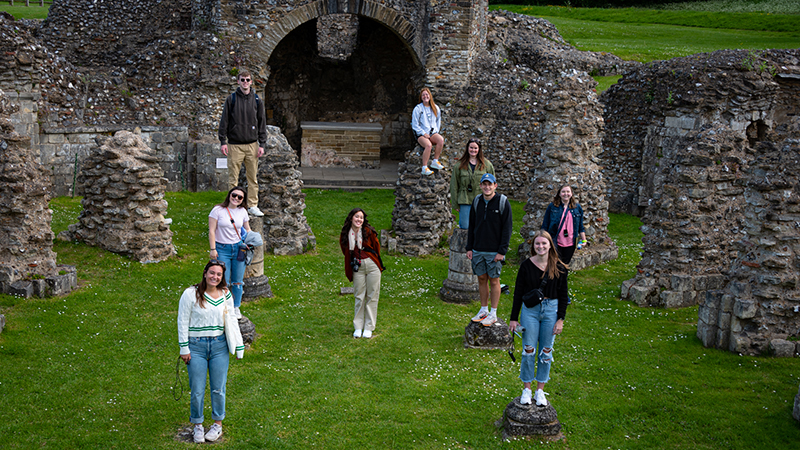Clearly Furman raises $92.5 million for The Furman Advantage

Furman alumni and friends have contributed $92.5 million toward a goal of $126 million for The Furman Advantage, the university’s four-year educational framework shaped by mentoring, advising, engaged learning and classroom learning.
The gifts are part of Clearly Furman, the Campaign for Our Third Century, the university’s historic comprehensive campaign, which seeks to raise $426 million by 2026. To date, the campaign has raised $390.7 million, or nearly 92% of its goal.
The Furman Advantage, which is at the center of the campaign priority Power Our Defining Difference, offers students collaborative research with faculty, study away experiences and internships.
“Furman has a long history of promoting internships for our students. What’s changed and what differentiates us from other universities is the number of students who are able to participate in credit bearing internships during the fall and spring semester, and full-time internships during the summer,” said Beth Pontari, interim vice president for academic affairs and provost. “For summer internships, Furman provides a stipend for students to remove financial barrier to participate, so that 100% of our students are able to take advantage of these opportunities.”
Their first internship is often what qualifies them for competitive, prestigious internships. That support is currently made possible by funding from The Duke Endowment and other philanthropic sources.
“What’s different from other schools is that we provide the option for a second internship with a stipend,” said Pontari. “Students who choose an internship after their sophomore year are more a likely to receive the bigger internship after their junior year in a place like New York City. Our students are well prepared to speak with employers because of our engaged learning ecosystem.”
To ensure that this level of support continues for Furman students, a budget line of $700,000 per year is necessary to cover the expense, said Pontari.
The same is true for summer undergraduate research experiences, which require about $1 million per year. The Furman Advantage provides summer stipends so that students can immerse themselves in full-time research with a faculty mentor rather than take a part-time job.
Furman students are well-prepared for these internships and other experiences in part because of the Pathways Program, a curriculum for first-year students and sophomores that helps to ease their transition to college and positions them to take full advantage of the opportunities at Furman. During the Pathways Program, students also create a resume and a LinkedIn profile, and complete an interview with an alumnus.
The Pathways Program also directs students to many other offices on campus that provide guidance and support. For example, the Internship Office helps students identify opportunities and support them before, during and after their experience.
How Furman students compare
The latest data from the National Survey of Student Engagement (NSSE) show how often Furman students are taking advantage of engaged learning experiences, compared to students at nearly 1,700 bachelor’s-granting colleges and universities in the United States and Canada (“NSSE schools”), Carnegie institutions (those with a similar emphasis on teaching undergraduates) and Southeast private colleges.
– 80% of Furman seniors had participated in an internship. This surpasses Carnegie schools (66%), Southeast private schools (52%) and NSSE schools (48%).
– Nine out of 10: When surveyed across 10 categories related to academic challenge, learning with peers, experiences with faculty, and the campus environment, first-year Furman students scored significantly higher than NSSE schools for nine out of 10 engagement indicators.
– At 56%, Furman seniors were more than twice as likely than seniors at NSSE schools to have completed research with faculty or to have research in progress, 29 points higher than Southeast private schools and 9 points above the Carnegie schools.
– 45% of Furman seniors had completed a study away experience or had one in progress. This surpasses Carnegie schools (24%), Southeast private schools (12%) and NSSE (8%).